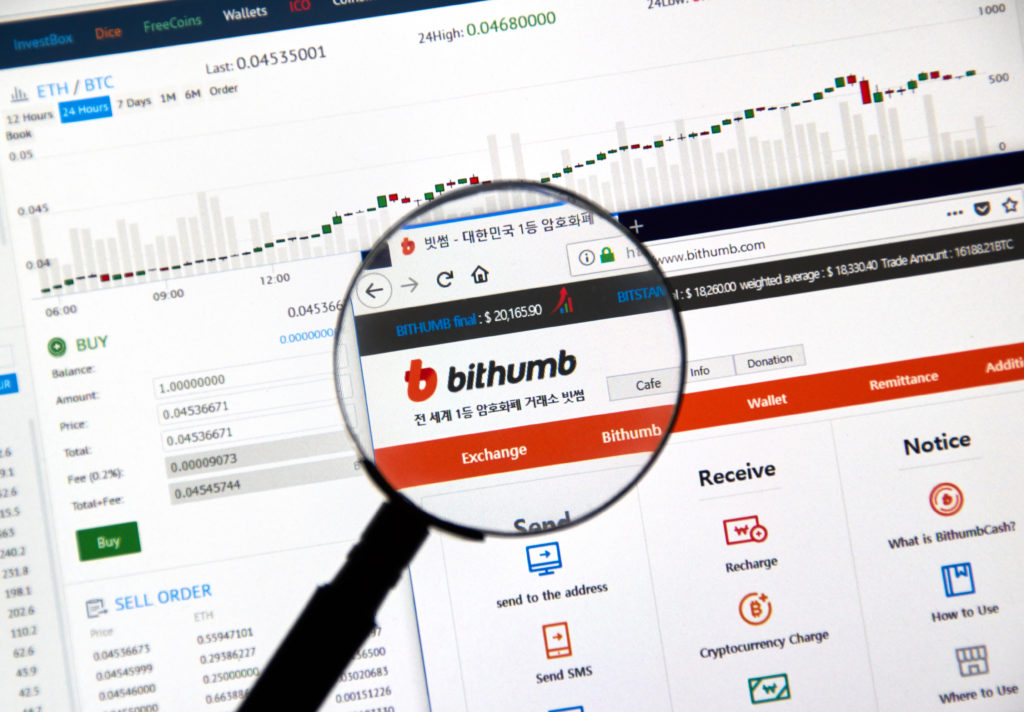South Korea has an interesting relationship with cryptocurrency, a relationship that could be best likened to a bowl of kimchi: hot and cold. The South Korean government has mulled over possible regulations to cryptocurrencies, and has already enacted measures on January 30th, 2018 to tackle money laundering, restricting trading to real-name bank accounts, alongside banning government officials from owning cryptocurrencies. The market responded negatively to the news, with Bitcoin falling from $11,300 to just over $10,200 during the period following the announcement. The government has also clamped down on foreign individuals looking to open cryptocurrency exchange accounts, requiring that users be citizens of the Republic of Korea in order to trade on Korean exchanges.
Despite the negative effect of regulations on the market, there is hope that South Korea’s economy could be a hot bed for cryptocurrency’s development. More than three out of ten salaried workers in South Korea have invested in cryptocurrencies, according to job portal Saramin (link in Korean). Of those who invested in cryptocurrencies, more than 80% made money from it, and about 20% made an average return of 425% on their investment.
The average Korean cryptocurrency investor owned around 5.66 million won ($5,260) in cryptocurrencies. As the third-largest cryptocurrency market behind the United States and Japan, there are ambitious plans for cryptocurrencies in the country, with plans to bring crypto payments to Korean retailers.

Bringing Crypto to the Mainstream
Bithumb, a Seoul-based cryptocurrency exchange, is partnering with digital payment service provider Korea Pay Services (KPS) to give over 6,000 of the country’s retail outlets the option of accepting cryptocurrency payments for goods and services. Shops, such as Café Drop Top, Yankee Candle and Sulbing, one of Korea’s most popular dessert shops will accept cryptocurrencies.
The scope of the partnership between an organization as big as KPS and Bithumb is not to be underestimated. KPS was the first Korean company to provide mobile gift certifications and solutions through more than 400 domestic channels, including Starbucks, Outback, and Kakao Talk based on alliances with major domestic franchises, according to the Economic Review.
As for implementation, Bithumb plans to build barcodes into mobile apps that will allow customers to make cryptocurrency payments to establishments. Bithumb executives plan to launch these new services by summer of 2018, and hopes to expand the number of stores to 8,000 by year’s end.
Bithumb has also established a partnership with WITH Innovation Corp., a travel accommodation company. That partnership will enable customers to pay with cryptocurrencies for over 50,000 accommodation facilities. Bithumb’s collaboration with WITH Innovation supports bitcoin, bitcoin cash, ripple, ether, ethereum classic, EOS, qtum, monero, litecoin, zcash, bitcoin gold, and dash. Customers can book a room through WITH Innovation’s apps and pay their bills with cryptocurrencies from their Bithumb accounts.
Conclusion
Cryptocurrencies, the value of the most prominent having skyrocketed in late 2017, is in an interesting situation. With prices rising and dropping in early 2018, there are still those who see practical use of the burgeoning cryptocurrencies, in South Korea of all places. Thanks to Bithumb, not only will people be able to purchase products and travel accommodations not only through their phones, but also with cryptocurrencies as well. The Korea-based exchange is one of the first steps that will see cryptocurrencies move into the realm of the practical.

Leave a Reply